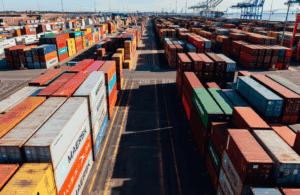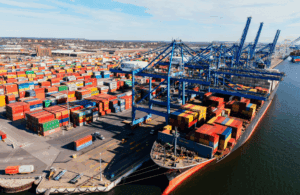
In today’s hyper-competitive global economy, logistics companies face unprecedented pressure to deliver faster, more cost-effectively, and with greater transparency. From last-mile delivery and warehouse automation to cross-border compliance and real-time tracking, organizations must navigate a labyrinth of complex operational challenges while meeting escalating customer expectations. Logistics outsourcing to the Philippines has emerged as a transformative strategy, enabling companies to access specialized expertise, advanced technologies, and scalable operational capacity. This approach allows businesses to build resilient, agile, and cost-efficient supply chains that can adapt to market volatility and evolving consumer demands, turning logistical challenges into a significant competitive advantage.
The modern logistics landscape demands exceptional operational agility and technological sophistication. Companies must manage complex multi-modal transportation networks, optimize warehouse operations, ensure regulatory compliance across jurisdictions, and provide seamless customer experiences throughout the supply chain journey. Logistics outsourcing to the Philippines provides a proven framework for building the operational excellence and technological capabilities needed to thrive in this demanding environment. These strategic partnerships deliver access to highly trained professionals with deep expertise in transportation management, warehouse operations, and customer service, allowing companies to scale operations efficiently while maintaining service quality. By leveraging the specialized skills of a dedicated outsourced team, companies can drive process improvements, implement best practices, and achieve a level of operational efficiency that is difficult to attain with in-house resources alone.
The race to dominate the logistics sector has never been more intense. Logistics outsourcing to the Philippines provides the operational flexibility and specialized expertise needed to optimize supply chain performance, enhance customer satisfaction, and drive sustainable growth. By partnering with experienced providers, logistics companies can streamline order fulfillment processes, improve inventory accuracy, and access a highly skilled talent pool at competitive costs. This strategic approach allows companies to allocate internal resources to network expansion and technology innovation, confident that critical operations are managed by experienced professionals committed to delivering measurable results. This partnership model transforms the supply chain from a cost center into a strategic enabler of business growth and market leadership.
Why the Philippines is the Premier Destination for Logistics Outsourcing
The nation has established itself as a global leader in logistics and supply chain outsourcing, driven by a unique combination of operational expertise, technological infrastructure, and a workforce deeply experienced in complex logistics operations. For companies seeking to optimize their supply chain, enhance customer satisfaction, and accelerate their digital transformation, the archipelago provides a compelling value proposition that is unmatched by other outsourcing destinations.
Logistics and Supply Chain Expertise
The Philippines boasts a large and growing community of logistics professionals with extensive experience in transportation management, warehouse operations, freight forwarding, and customs compliance. Logistics outsourcing to the country taps into this exceptional talent pool. Universities and vocational training centers across the country have developed specialized curricula focused on supply chain management, producing graduates with practical skills in route optimization, inventory management, and logistics technology platforms. This deep and continuously replenished talent pool makes logistics outsourcing a strategic choice for companies seeking professionals who can manage complex supply chain operations with precision and efficiency. The workforce is not only technically proficient but also possesses a strong understanding of global logistics standards and practices, ensuring seamless integration with international supply chains.
Cost-Effectiveness with Operational Excellence
A key advantage of logistics outsourcing is the ability to achieve significant cost savings without compromising on service quality or operational performance. Companies can access highly skilled logistics coordinators, warehouse specialists, and customer service representatives at a fraction of the cost of maintaining equivalent teams in-house. This economic efficiency allows for greater investment in technology infrastructure, network expansion, and process optimization, driving a powerful return on investment through logistics outsourcing to the Philippines. The favorable economic environment, combined with a highly productive workforce, creates a value proposition that is unmatched in the global outsourcing market.
Advanced Technology Infrastructure
The BPO industry is supported by world-class technology infrastructure, with modern facilities equipped with redundant power, high-speed internet, and advanced logistics management platforms. Leading providers have invested heavily in Transportation Management Systems (TMS), Warehouse Management Systems (WMS), and real-time tracking technologies, ensuring seamless integration with client operations. This commitment to technology ensures that logistics outsourcing provides the robust and reliable infrastructure needed for modern supply chain operations. The nation’s digital readiness and continuous investment in telecommunications ensure that data flows securely and efficiently, which is critical for real-time decision-making in logistics outsourcing to the Philippines.
Strategic Time Zone for Global Operations
The country’s strategic location (PST, UTC+8) offers significant advantages for global logistics companies. Logistics outsourcing to the Philippines enables a follow-the-sun model, providing 24/7 support for shipment tracking, customer inquiries, and exception management across different time zones. This is critical for serving global customers and ensuring continuous visibility throughout the supply chain. The ability to have teams working while North American and European counterparts are offline means that tasks are completed overnight, leading to faster resolution times and a more responsive supply chain.
Cultural Alignment and Service Excellence
Filipino professionals are known for their strong work ethic, attention to detail, and commitment to customer service excellence. With high proficiency in English and a deep understanding of global business practices, Filipino teams can provide authentic and effective support to customers and partners worldwide. This cultural alignment, combined with a service-oriented mindset, makes logistics outsourcing to the nation an ideal solution for companies committed to delivering exceptional customer experiences. The workforce’s adaptability and problem-solving skills are invaluable in the dynamic and often unpredictable world of logistics, making logistics outsourcing a strategic imperative.
SUCCESS STORIES: DRIVING LOGISTICS EFFICIENCY AND CUSTOMER SATISFACTION THROUGH OUTSOURCING TO THE PHILIPPINES
A Major Freight Forwarder
Collaborated with a call center in the Philippines to optimize customs clearance and documentation processes for shipments between Asia and North America. The dedicated support team reduced customs processing time by 30% and achieved 99.8% documentation accuracy, significantly enhancing cross-border shipment efficiency and customer satisfaction. This operational improvement enabled the freight forwarder to launch a premium, expedited shipping service, strengthening its competitive edge in international logistics.
A Regional Last-Mile Delivery Service
Partnered with a Philippine outsourcing team to manage customer communications and delivery scheduling for a high-volume grocery delivery client. Through proactive communication and efficient route coordination, the team boosted customer satisfaction scores by 20 points and reduced delivery-related complaints by 45%. The success of this collaboration led the client to expand its service area, deepening its strategic partnership with the last-mile provider.
Industry Services Companies Outsourcing to the Philippines

LOGISTICS OUTSOURCING TO THE PHILIPPINES: POWERING SUPPLY CHAIN EXCELLENCE
The logistics industry is experiencing a fundamental transformation, driven by technological innovation, evolving customer expectations, and increasing operational complexity. Logistics outsourcing to the Philippines enables companies to navigate this transformation by accessing specialized expertise and advanced capabilities that enhance supply chain performance while optimizing costs. By leveraging strategic partnerships, logistics organizations can build the operational resilience and technological sophistication needed to compete effectively in an increasingly demanding marketplace. This allows them to focus on strategic growth initiatives, such as entering new markets or developing innovative service offerings, while their operational backbone is strengthened by a dedicated and expert team.
Transformative Trends Reshaping Logistics Operations
The logistics outsourcing landscape is being transformed by several key trends that are redefining how companies manage, optimize, and deliver supply chain services:
Real-Time Visibility and IoT Integration
The proliferation of Internet of Things (IoT) devices and sensors has fundamentally changed supply chain visibility, enabling real-time tracking of shipments, vehicles, and inventory across the entire logistics network. This technological evolution is creating unprecedented demand for specialized services that help logistics companies implement and manage IoT ecosystems effectively. Logistics outsourcing to the Philippines provides access to teams with expertise in IoT integration and real-time tracking technologies. Outsourcing partners are helping companies deploy sensor networks, implement real-time tracking platforms, and develop analytics capabilities that transform raw data into actionable insights. These partnerships support the development of comprehensive visibility solutions that enhance decision-making, improve customer communication, and enable proactive exception management through logistics outsourcing to the Philippines.
Autonomous and Electric Vehicle Adoption
The logistics industry is undergoing a significant transformation in fleet composition, with autonomous vehicles and electric trucks moving from experimental concepts to operational reality. This evolution is creating demand for specialized services that help logistics companies navigate the complex transition to next-generation vehicle technologies. Logistics outsourcing to the Philippines enables companies to access expertise in fleet management and vehicle technology integration. Outsourcing partners are helping companies develop strategies for autonomous vehicle integration, electric fleet deployment, and charging infrastructure optimization. These partnerships support the development of comprehensive fleet transformation roadmaps that balance operational requirements with sustainability objectives, demonstrating the value of logistics outsourcing to the Philippines.
Warehouse Automation and Robotics
Warehouse operations are being transformed by robotics, automated guided vehicles (AGVs), and intelligent automation systems that enhance productivity while reducing labor costs. This technological evolution is creating demand for specialized services that help logistics companies implement and optimize warehouse automation solutions. Logistics outsourcing to the Philippines provides access to specialists with experience in warehouse technology and automation systems. Outsourcing partners are helping companies deploy robotic picking systems, implement automated storage and retrieval solutions, and develop workforce strategies that integrate human and automated operations effectively. These partnerships support the development of comprehensive automation roadmaps that enhance operational efficiency while maintaining flexibility to adapt to changing business requirements through logistics outsourcing to the Philippines.
Circular Economy and Reverse Logistics
Sustainability imperatives and regulatory requirements are driving significant growth in reverse logistics and circular economy initiatives, creating new operational challenges and opportunities for logistics providers. This evolution is creating demand for specialized services that help companies develop and manage efficient reverse logistics operations. Logistics outsourcing to the Philippines enables companies to build sustainable reverse logistics capabilities efficiently. Outsourcing partners are helping companies implement returns management systems, develop refurbishment processes, and create closed-loop supply chains that minimize waste while maximizing value recovery. These partnerships support the development of comprehensive reverse logistics capabilities that meet regulatory requirements while creating new revenue opportunities through logistics outsourcing to the Philippines.
No Cost. No Obligation. No Strings Attached.
Explore the Opportunities — Talk to Us Today!
STRATEGIC ADVANTAGES
Access to Specialized Logistics Expertise
Logistics outsourcing to the Philippines provides access to a deep pool of highly skilled logistics professionals, from transportation coordinators and warehouse specialists to customs brokers and supply chain analysts. These experts can help logistics companies improve operational efficiency, ensure regulatory compliance, and develop innovative solutions to complex supply chain challenges. By leveraging this specialized expertise through logistics outsourcing to the Philippines, companies can enhance their service offerings, improve customer satisfaction, and gain a competitive advantage in the marketplace.
Scalable and Flexible Operations
Outsourcing allows logistics companies to scale their operations up or down as needed, without the need for significant investment in staff and infrastructure. This flexibility is particularly valuable in the logistics industry, where demand can fluctuate dramatically based on seasonal trends, economic conditions, and unforeseen events. By partnering with an outsourced provider through logistics outsourcing to the Philippines, companies can ensure that they have the resources they need to meet customer demand, without the financial risk of maintaining a large in-house workforce.
Advanced Technology and Analytics
Leading BPO providers in the Philippines have made significant investments in the latest logistics technologies, from transportation management systems and warehouse management systems to real-time tracking platforms and data analytics dashboards. By outsourcing, logistics companies can access these advanced technologies without the need for significant capital investment, allowing them to improve efficiency, enhance visibility, and make more informed decisions. Logistics outsourcing to the Philippines is the key to unlocking these technological advantages.
Enhanced Customer Experience
By outsourcing customer service and support functions, logistics companies can provide a more responsive and personalized experience to their customers. Outsourced teams can provide 24/7 support, handle inquiries in multiple languages, and proactively communicate with customers about the status of their shipments. This focus on customer service through logistics outsourcing to the Philippines can lead to increased customer satisfaction, loyalty, and retention.
Logistics outsourcing to the Philippines offers a powerful combination of cost savings, quality improvement, and operational flexibility. By leveraging the specialized expertise and advanced technologies of a dedicated outsourced partner, logistics companies can build a more resilient and competitive business, well-positioned for long-term success.
OPERATIONAL EXCELLENCE
Transportation Management
Outsourced teams of experienced transportation coordinators manage all aspects of the transportation lifecycle, from carrier selection and rate negotiation to shipment tracking and performance monitoring. They use advanced transportation management systems to optimize routes, reduce transit times, and minimize transportation costs, ensuring that every shipment is delivered on time and on budget.
Warehouse and Inventory Management
Skilled warehouse specialists manage all aspects of warehouse operations, from receiving and put-away to picking, packing, and shipping. They use advanced warehouse management systems to optimize inventory levels, improve order accuracy, and maximize warehouse space utilization. This expertise is a core component of Logistics outsourcing to the Philippines.
Customer Service and Support
Dedicated customer service teams provide 24/7 support to customers, handling inquiries, resolving issues, and providing proactive updates on the status of their shipments. They are trained in the latest customer service best practices and are committed to delivering an exceptional customer experience.
Customs and Trade Compliance
Specialized customs and trade compliance teams ensure that all cross-border shipments comply with local, national, and international regulations. They manage all aspects of the customs clearance process, from preparing documentation and classifying goods to paying duties and taxes, ensuring that shipments move smoothly across borders.
Data Analytics and Business Intelligence
Experienced data analysts and business intelligence specialists help logistics companies make sense of the vast amounts of data generated by their supply chains. They provide actionable insights into transportation costs, warehouse efficiency, carrier performance, and customer behavior, enabling companies to make more informed decisions and drive continuous improvement.
Technology Platform Management
Dedicated IT teams manage and maintain all of the technology platforms that underpin modern logistics operations, from transportation management systems and warehouse management systems to customer portals and mobile applications. They ensure that these systems are secure, reliable, and optimized for performance, providing a stable foundation for business growth.
Supplier and Vendor Management
Outsourced teams manage relationships with suppliers and vendors, from onboarding and contract negotiation to performance monitoring and issue resolution. They ensure that all suppliers and vendors meet their contractual obligations and that they are providing the best possible service at the most competitive price.
Continuous Process Improvement
Outsourcing partners are committed to continuous process improvement, constantly seeking new ways to improve efficiency, enhance quality, and reduce costs. They work closely with their clients to identify areas for improvement, implement best practices, and leverage new technologies to drive ongoing operational excellence.
ENSURING COMPLIANCE AND SECURITY
Regulatory and Trade Compliance
Navigating the complex web of international trade regulations is a significant challenge for logistics companies. Leading BPO providers in the Philippines have dedicated teams of compliance specialists who are experts in customs regulations, trade agreements, and transportation laws. They ensure that all shipments are properly documented, classified, and declared, minimizing the risk of delays, fines, and penalties. Logistics outsourcing to the Philippines ensures compliance.
Data Security and Confidentiality
Logistics companies handle a vast amount of sensitive data, from customer information and shipment details to financial records and trade secrets. Outsourcing providers in the Philippines have implemented robust security measures to protect this data from unauthorized access, use, and disclosure. These measures include secure data centers, encrypted networks, and strict access controls, as well as comprehensive training for all employees on the importance of data security and confidentiality.
Business Continuity and Disaster Recovery
To ensure uninterrupted service, leading BPO providers in the Philippines have developed comprehensive business continuity and disaster recovery plans. These plans include redundant systems, backup data centers, and remote work capabilities, ensuring that operations can continue in the event of a natural disaster, power outage, or other disruption. This commitment to business continuity provides logistics companies with the peace of mind that their critical operations will not be interrupted.
Performance Optimization and ROI
Logistics outsourcing to the Philippines delivers a significant return on investment by enabling companies to reduce costs, improve efficiency, and enhance customer satisfaction. By leveraging the lower cost of labor in the Philippines, logistics companies can achieve substantial savings on a wide range of operational tasks, from data entry and customer service to warehouse management and transportation planning. These savings can be reinvested into strategic initiatives that drive growth and innovation. Furthermore, the specialized expertise and advanced technologies of an outsourced partner can lead to significant improvements in quality and efficiency, resulting in a higher quality service, a faster time-to-market, and a more engaged and loyal customer base.
GLOBAL DELIVERY MODELS AND 24/7 SUPPORT
With their strategic location and highly skilled workforce, outsourcing providers in the Philippines are able to offer a variety of global delivery models, from fully dedicated teams to project-based engagements. This flexibility allows logistics companies to choose the model that best suits their needs and budget. Furthermore, the time zone advantage of the Philippines enables providers to offer 24/7 support, ensuring that there is always someone available to handle urgent tasks and respond to inquiries from customers, partners, and drivers around the world. This round-the-clock coverage is a key advantage of Logistics outsourcing to the Philippines.
THE PHILIPPINES ADVANTAGE IN Logistics Outsourcing
The Philippines has established itself as the premier destination for logistics outsourcing through a unique combination of operational expertise, technological innovation, and a deep commitment to service excellence. With extensive experience in complex supply chain workflows, advanced logistics platforms, and a proven track record of delivering measurable results, Logistics outsourcing to the Philippines provides logistics companies with the capabilities needed to optimize their operations, enhance customer satisfaction, and drive sustainable growth. By partnering with Philippine outsourcing providers, logistics organizations gain access to world-class expertise, scalable capacity, and innovative solutions that transform the supply chain and create lasting competitive advantages. The country stands as a beacon of reliability and excellence in the global BPO landscape, making it the clear choice for leaders in the logistics industry.
Strategic Value Creation Through Specialized Expertise
The strategic value of specialized contact center outsourcing in logistics operations extends beyond cost reduction to encompass enhanced customer retention, improved operational efficiency, and strengthened competitive positioning. Logistics companies that invest in high-quality outsourcing services often experience improved customer loyalty, reduced customer acquisition costs, and enhanced reputation in competitive markets. These benefits reflect the critical role that customer communication plays in overall logistics service delivery and customer satisfaction.
Specialized logistics providers bring deep industry expertise that enables them to understand the unique challenges and requirements of logistics customer service. This expertise encompasses knowledge of shipping terminology, understanding of logistics processes, familiarity with industry regulations, and awareness of common customer concerns and questions. When logistics companies partner with specialized vendors, they gain access to this accumulated expertise without the time and cost investment required to develop these capabilities internally.
The scalability advantages of call center outsourcing are particularly valuable for logistics companies experiencing seasonal fluctuations, geographic expansion, or service diversification. Outsourcing partners can rapidly scale service provider capacity to accommodate peak shipping periods, new market entry, or expanded service offerings without requiring logistics companies to invest in additional infrastructure or personnel. This flexibility enables logistics companies to maintain consistent customer service quality while adapting to changing business requirements and market conditions.
Logistics Outsourcing to the Philippines
 The Logistics industry, with its emphasis on efficiency and customer service, finds a valuable outsourcing ally in the Philippines. The country’s workforce excels in logistics operations, offering skills in inventory management, order processing, customer coordination, and shipping support. Filipino professionals’ proficiency in English and strong communication skills are essential for coordinating international logistics operations. They are also adept at using various logistics management software, ensuring seamless integration with global logistics practices. Outsourcing to the Philippines enables logistics companies to enhance their operational efficiency, improve customer satisfaction, and focus on expanding their logistical networks and services.
The Logistics industry, with its emphasis on efficiency and customer service, finds a valuable outsourcing ally in the Philippines. The country’s workforce excels in logistics operations, offering skills in inventory management, order processing, customer coordination, and shipping support. Filipino professionals’ proficiency in English and strong communication skills are essential for coordinating international logistics operations. They are also adept at using various logistics management software, ensuring seamless integration with global logistics practices. Outsourcing to the Philippines enables logistics companies to enhance their operational efficiency, improve customer satisfaction, and focus on expanding their logistical networks and services.





